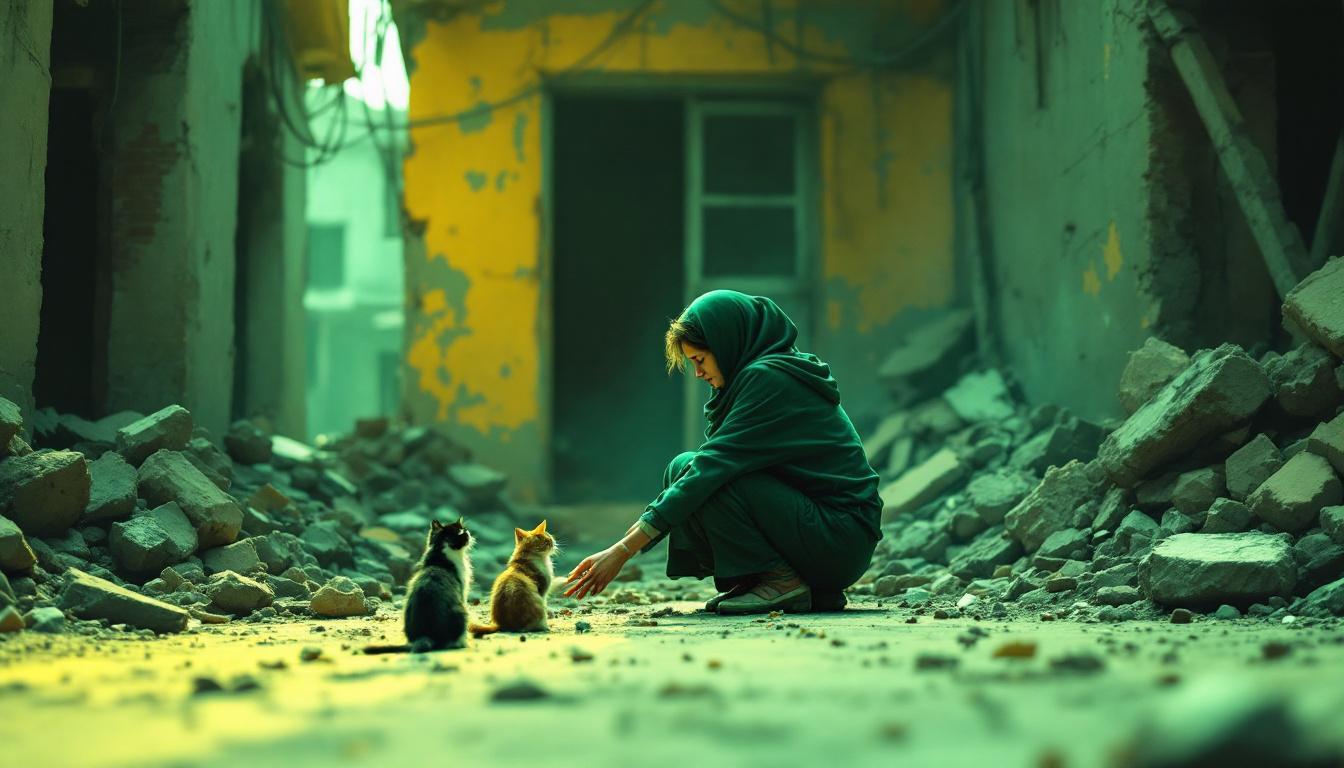A new wave of creativity is sweeping the film industry, driven by advances in artificial intelligence that are transforming how cinematic content is produced. One example is Midnight Drop, a 12-minute AI-generated film depicting the recent US attack on Iranian nuclear sites. Created in just two weeks by directors Samir Mallal and Bouha Kazmi, the film uses AI to deliver visually arresting, news-based cinema at a fraction of the time and cost of traditional methods.
The film features a haunting image of a woman feeding stray cats amid ruins in Tehran following Israeli airstrikes. Though it appears shot on location, the protagonist is entirely fictional, conjured by AI. Mallal, a London-based documentary filmmaker, describes this new form as “cinematic news”, offering a way to explore current events through rapid, AI-driven production that once required years and substantial budgets.
At the heart of this shift is Google's Veo3 model, part of the Flow AI video tool, which is transforming content on platforms such as YouTube. Alongside technologies like OpenAI’s Sora and Midjourney, Mallal has produced short films that blend current affairs with vivid visual storytelling. His earlier work Spiders in the Sky recreated a Ukrainian drone strike on Russian bombers, showing how AI can compress content timelines from years to weeks.
Industry figures acknowledge the transformative potential. TV producer Richard Osman called it “the end of one era and the birth of another”, predicting that by 2027, AI will underpin much of advertising, trailers and short-form content. David Jones, CEO of Brandtech Group, foresees a total overhaul of brand content production, with generative AI becoming widespread. Netflix has also adopted the technology, using it to create visual effects for the Argentine sci-fi series El Eternauta. According to CEO Ted Sarandos, AI-generated sequences there were completed ten times faster than traditional methods.
Yet the rise of AI filmmaking raises legal and ethical concerns, especially over copyright. UK government proposals to allow AI models to train on copyrighted material without explicit permission have sparked backlash. Campaigners such as Beeban Kidron emphasise the need for fair compensation for creators. Mallal supports accessible AI programmes that reward original artists, stressing the importance of balance in the evolving ecosystem.
Creatively, Mallal champions “prompt craft”—the skill of guiding AI with precise instructions to achieve specific cinematic effects. This digital craftsmanship enables rapid experimentation with elements like camera angles and lighting, injecting new energy into the filmmaking process. But it also brings challenges, including the need to sift through incoherent or low-quality outputs—what Mallal calls “slop”—amid a deluge of generated content.
AI-powered tools offer a moment of optimism for the UK, with the potential to democratise filmmaking, empower independent voices and respond rapidly to cultural shifts. As these technologies evolve, the UK is well positioned to lead in responsible AI innovation within the creative industries—fostering a future where human ingenuity and machine intelligence tell stories together in unprecedented ways.
Created by Amplify: AI-augmented, human-curated content.


